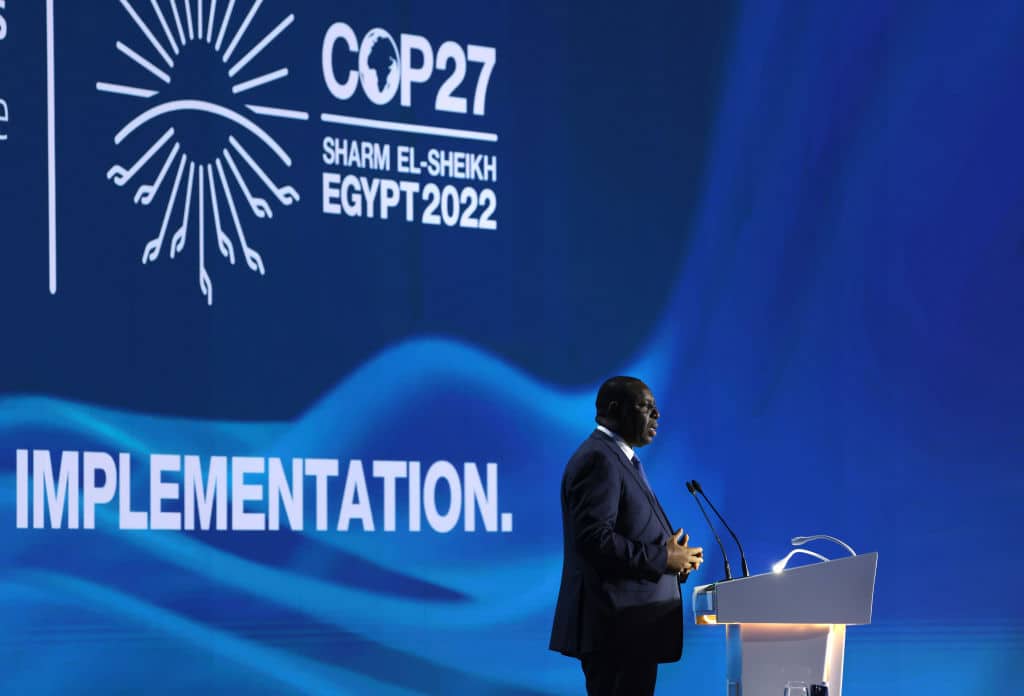By Paula Slier
The battle over Africa’s future energy infrastructure emerged as one of the key issues at the COP 27 United Nations climate summit recently held at Sharm el-Sheikh in Egypt. Among the 35,000 attendees from 200 countries were government officials, campaign groups, scientists, business representatives and climate activists. The circumstances in which delegates met were very different to last year’s negotiations. The war in Ukraine, acceleration of renewable energy amid a clean energy transition and the impacts of climate change such as rising sea level, loss of arable land, groundwater salinity and biodiversity formed part of the discussions.
In welcoming delegates, Egyptian president, Abdel Fattah El-Sisi highlighted the impact of Covid-19 on the global economy, stressing that countries without a strong economy were among the worst affected.
Many of the African representatives felt that most of the promises made at COP 26 had remained largely unfulfilled and expressed hope that this year countries would finally agree to pay for the loss and damage already caused by climate change.
South African President, Cyril Ramaphosa, urged developed economies to honor their commitments, criticizing international funders for making it difficult for poorer nations to access aid to fight climate change.
Loading...
Critics of the conference complained the showcase event was just another platform for the first-world West and Global North to dictate the politics and economics of climate change. The words most commonly uttered by most delegates from Africa were “loss and damage, just energy and climate justice”.
Almost every session dealt with the statistic that developed nations contributed more than 90% to global warming – and continued to do so by using coal and fossil fuels when it suited them.
Senegalese President, Macky Sall, lambasted the West for advising African countries to go green while they themselves did not, and pushed global leaders to help reduce the number of millions of people who are still without electricity.
“We are in favor of a just and fair green transition, instead of decisions that harm our development process,” he told some 100 world leaders at the conference.
“We have 600 million people in Africa who don’t have access to electricity at all. We have over 900 million people in Africa who do not have access to modern forms of energy for cooking or domestic heating… No progress can be made in any society without energy.”
The topic of economic entrapment was also raised – the fact that Africa boasted valuable minerals that could drive the manufacturing of clean energy projects, like batteries, solar and wind but these were controlled by global multinationals from Europe and the US.
On the positive side, delegates expressed the belief that Africa could reach its goal of going green if a means for a balanced change for a Green Economy and a much lower carbon footprint came to play. African delegates urged richer nations to set up a mechanism for providing financial support instead of granting loans to help curb climate change challenges. Negotiations, however, have proven tough with some of the richest countries united in pushing against the idea of setting up a new fund.
Loading...
